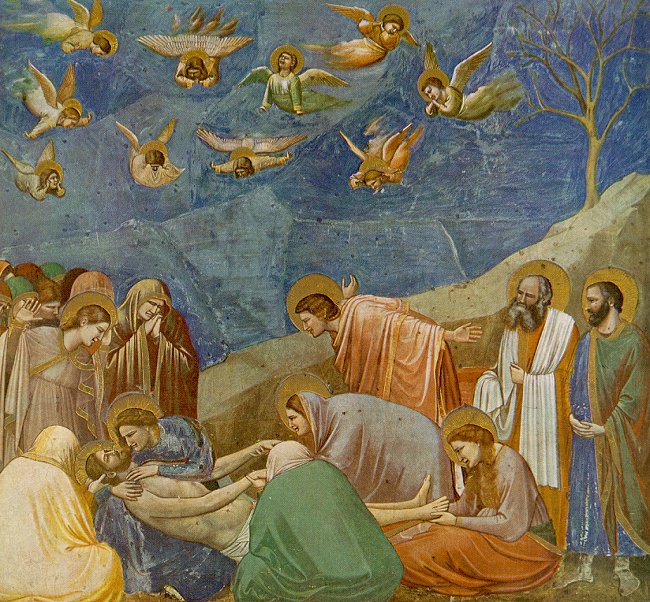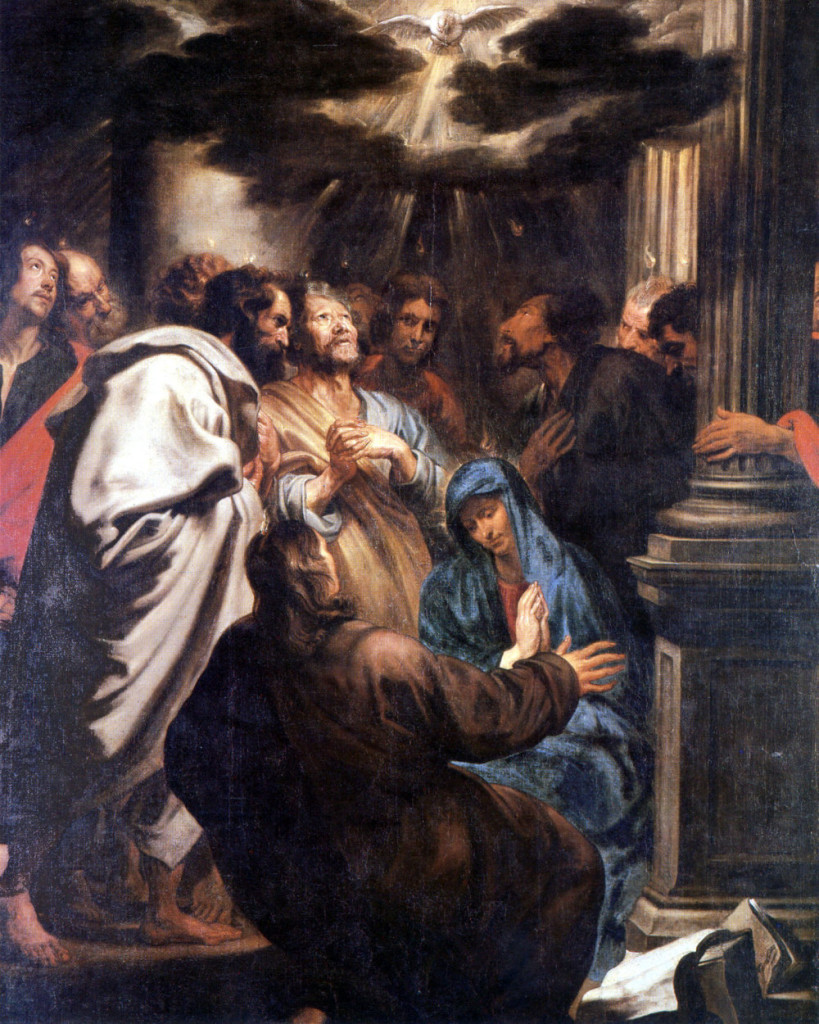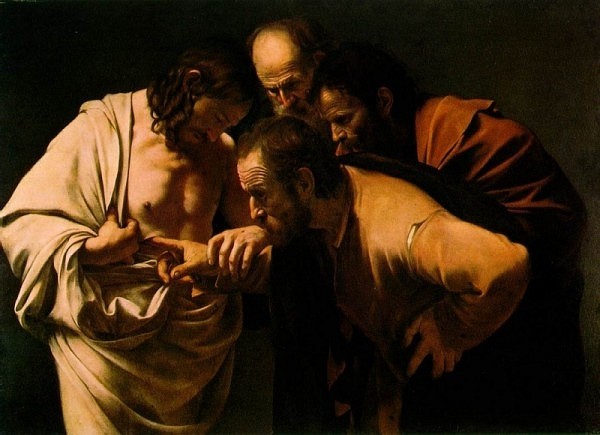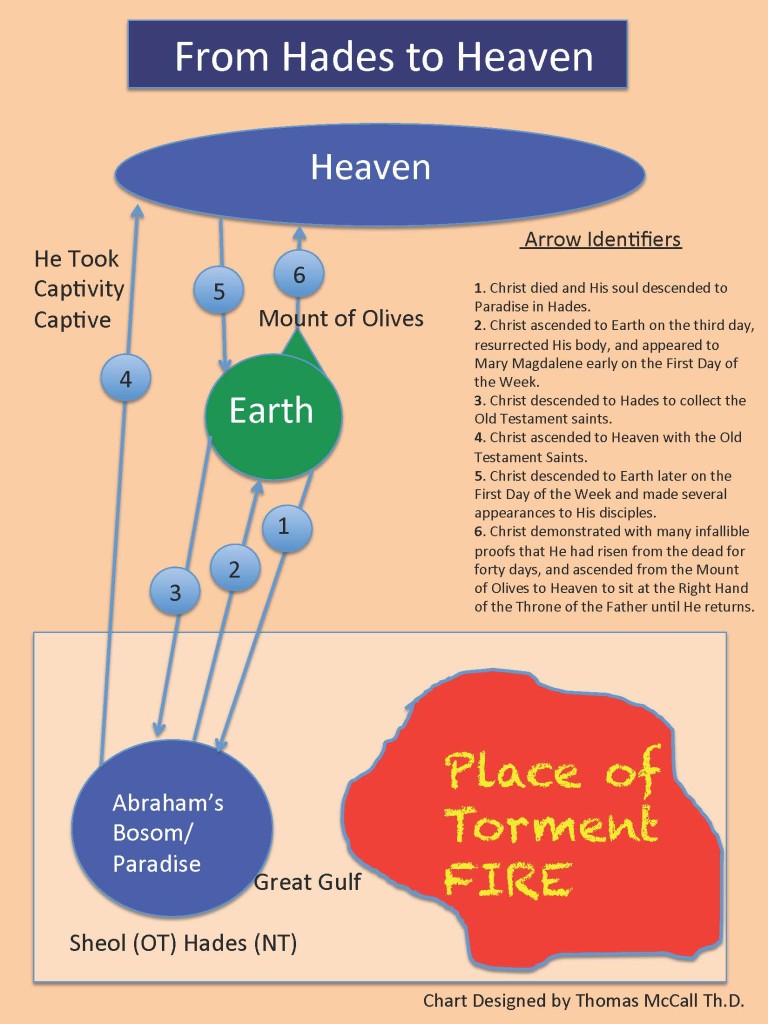Jesus’ Path From Hades to Heaven
FROM HADES TO HEAVEN
By Dr. Thomas S. McCall
What happened to the saints of the Old Testament when they died? What happened when Christ died and “descended in to Hades”? What happened between the time the risen Christ appeared to Mary Magdalene and the time He appeared to the disciples later that Sunday evening? What does the Scripture mean that Christ led “captivity captive?” Where do believers go today when they die? The purpose of this article is to find the answer to these questions in the Word of God.
When Christ died, His body was in the tomb, but His soul went to Sheol (Hades); He then rose from the dead and ascended into Heaven
Psalm 16:8-11
8 I have set the LORD continually before me; Because He is at my right hand, I will not be shaken. 9 Therefore my heart is glad, and my glory rejoices; My flesh also will dwell securely. 10 For Thou wilt not abandon my soul to Sheol; Neither wilt Thou allow Thy Holy One to undergo decay. 11 Thou wilt make known to me the path of life; In Thy presence is fullness of joy; In Thy right hand there are pleasures forever (NASB).
David prophesied that his descendant, the Messiah, would die and his body would lie in a tomb but it would not decay. This means that the body would have to be raised from the dead within a few days. Furthermore, the Messiah’s soul would go to Sheol (Hades), but would not remain there. Sheol was the netherworld place of the dead both good and bad went after death in the Old Testament. This is called Hades in the New Testament. Instead He would be shown eternal life. Thus, His soul would be reunited with His body and be resurrected from the dead.
Acts 2:23-35
23 this Man, delivered up by the predetermined plan and foreknowledge of God, you nailed to a cross by the hands of godless men and put Him to death. 24 “And God raised Him up again, putting an end to the agony of death, since it was impossible for Him to be held in its power. 25 “For David says of Him, ‘I was always beholding the Lord in my presence; For He is at my right hand, that I may not be shaken. 26 ‘Therefore my heart was glad and my tongue exulted; Moreover my flesh also will abide in hope; 27Because Thou wilt not abandon my soul to Hades, Nor allow Thy Holy One to undergo decay. 28 ‘Thou hast made known to me the ways of life; Thou wilt make me full of gladness with Thy presence.’ 29 “Brethren, I may confidently say to you regarding the patriarch David that he both died and was buried, and his tomb is with us to this day. 30 “And so, because he was a prophet, and knew that God had sworn to and spoke of the resurrection of the Christ, that He was neither abandoned to Hades, nor did His flesh suffer decay. 32 “This Jesus God raised up again, to which we are all witnesses. 33 “Therefore having been exalted to the right hand of God, and having received from the Father the promise of the Holy Spirit, He has poured forth this which you both see and hear. 34 “For it was not David who ascended into heaven, but he himself says: ‘The Lord said to my Lord, “Sit at My right hand, 35 Until I make Thine enemies a footstool for Thy feet”‘ (NASB).
The Apostle Peter in his inaugural address of the Gospel on the Day of Pentecost quotes the prophecy by David in Psalm 16, and said that David was not speaking of himself being raised from the dead. After all, David died a thousand years before, and his tomb was visible as a great monument described by Josephus. Rather, David was prophesying about his descendant, the Messiah, whose flesh did not decay nor was His soul left in Hades. Indeed, David further prophesied that the Messiah would ascend into Heaven and sit at the right hand of the Father. It should be noted that Christ sitting at the right hand of the Father is not the same as Christ sitting on His own throne, also known as the throne of David. Christ will sit on His own throne when He returns to earth after the Rapture of the Church and after the Tribulation to establish the Millennial Kingdom.
Revelation 3:21
21 ‘He who overcomes, I will grant to him to sit down with Me on My throne, as I also overcame and sat down with My Father on His throne (NASB).
Before the Cross, the dead souls went to Sheol (Hades), the righteous
to the Bosom of Abraham, and the unrighteous to the Place of Torment
Luke 16:19-31
19 “Now there was a certain rich man, and he habitually dressed in purple and fine linen, gaily living in splendor every day. 20 “And a certain poor man named Lazarus was laid at his gate, covered with sores, 21 and longing to be fed with the crumbs which were falling from the rich man’s table; besides, even the dogs were coming and licking his sores. 22 “Now it came about that the poor man died and he was carried away by the angels to Abraham’s bosom; and the rich man also died and was buried. 23 “And in Hades he lifted up his eyes, being in torment, and saw Abraham far away, and Lazarus in his bosom. 24 “And he cried out and said, ‘Father Abraham, have mercy on me, and send Lazarus, that he may dip the tip of his finger in water and cool off my tongue; for I am in agony in this flame.’ 25 “But Abraham said, ‘Child, remember that during your life you received your good things, and likewise Lazarus bad things; but now he is being comforted here, and you are in agony. 26 ‘And besides all this, between us and you there is a great chasm fixed, in order that those who wish to come over from here to you may not be able, and that none may cross over from there to us.’ 27 “And he said, ‘Then I beg you, Father, that you send him to my father’s house– 28 for I have five brothers– that he may warn them, lest they also come to this place of torment.’ 29 “But Abraham said, ‘They have Moses and the Prophets; let them hear them.’ 30 “But he said, ‘No, Father Abraham, but if someone goes to them from the dead, they will repent!’ 31 “But he said to him, ‘If they do not listen to Moses and the Prophets, neither will they be persuaded if someone rises from the dead'” (NASB).
Jesus reveals that throughout the ages before the Cross-, the souls of the dead went to Sheol (Hades), but there were two major divisions in Hades: the Bosom of Abraham and the Place of Torment, with an impassable gulf between them. The righteous saints went to the Bosom of Abraham, while the unrighteous unbelievers went to the Place of Torment. The righteous believed in and looked forward to the redemptive sacrifice of the Messiah, but the unrighteous spurned the revelation of God through Moses and the prophets. The believers were comforted in the Bosom of Abraham, but they were not permitted to go to Heaven yet, because the penalty for their sins had not been paid. They could not enter into the presence of the Living God. Jesus proclaimed when He died “Tetelestai!” it is finished, the debt had been paid, and then His soul descended into Hades. He could then announce to the righteous souls that the time had come for them to be released from Hades and ascend with Him to Heaven and the presence of the Father. Before He could do that, He first had to demonstrate that He had risen from the dead. So His soul went back to earth, reunited and transformed His body and came forth from the grave victorious over death.
When Jesus arose from the dead on Resurrection Day, He told Mary Magdalene not to cling to Him because He had not yet ascended to the Father.
John 20:15-17
15 Jesus said to her, “Woman, why are you weeping? Whom are you seeking?” Supposing Him to be the gardener, she said to Him, “Sir, if you have carried Him away, tell me where you have laid Him, and I will take Him away.” 16 Jesus said to her, “Mary!” She turned and said to Him in Hebrew, “Rabboni!” (which means, Teacher). 17 Jesus said to her, “Stop clinging to Me, for I have not yet ascended to the Father; but go to My brethren, and say to them, ‘I ascend to My Father and your Father, and My God and your God'” (NASB).
After Jesus was complete with His resurrection body, the implication was that He descended again to Hades to gather the Old Testament saints and transport them from Hades to Heaven.
When Christ ascended to the Father, He took Captivity Captive. He took the righteous saints from the Bosom of Abraham to Heaven. This apparently was done on the Resurrection Day.
Psalm 68:18
18 Thou hast ascended on high, Thou hast led captive Thy captives; Thou hast received gifts among men, (NASB).
Ephesians 4:8-11
8 Therefore it says, “When He ascended on high, He led captive a host of captives, And He gave gifts to men.” 9 (Now this expression, “He ascended,” what does it mean except that He also had descended into the lower parts of the earth? 10 He who descended is Himself also He who ascended far above all the heavens, that He might fill all things.) 11 And He gave some as apostles, and some as prophets, and some as evangelists, and some as pastors and teachers, (NASB).
The Old Testament saints were captives in the sense that they were not permitted to go to the presence of the Lord before the Cross. Now, however, Christ led their souls in a great procession as a conquering general, to present them to the Father in Heaven as fully redeemed saints awaiting their own resurrection from the dead.
When Christ went to Hades what did He say? Peter says He proclaimed a message to the spirits in prison who were disobedient before the Flood, but He probably also announced to the Old Testament saints that it was now time for them to go with Him to Heaven. The debt for sin had now been fully paid.
1 Peter 3:18-20
18 For Christ also died for sins once for all, the just for the unjust, in order that He might bring us to God, having been put to death in the flesh, but made alive in the spirit; 19 in which also He went and made proclamation to the spirits now in prison, 20 who once were disobedient, when the patience of God kept waiting in the days of Noah, during the construction of the ark, in which a few, that is, eight persons, were brought safely through the water (NASB).
Peter says that Christ died and preached to the spirits in prison. The ones he mentions were certain ones who were disobedient at the time of the Flood of Noah. However, it also seems clear that He had a great message for the Old Testament saints about their coming elevation to Heaven. The unrighteous souls, however, were destined to remain in the Place of Torment in Hades until they face the Judge at the Great White Throne and the Lake of Fire.
After a very busy day of travel from Hades to earth to Hades to Heaven and back to earth, Christ appeared to the disciples later to inspect His wounds.
John 20:19-20
19 When therefore it was evening, on that day, the first day of the week, and when the doors were shut where the disciples were, for fear of the Jews, Jesus came and stood in their midst, and said to them, “Peace be with you.” 20 And when He had said this, He showed them both His hands and His side. The disciples therefore rejoiced when they saw the Lord (NASB).
No longer was there any reticence about being touched as there was earlier that day with Mary Magdalene. He had accomplished His unique mission of transporting the saints from Hades to Heaven and presenting to the Father the evidence of His sacrifice on the Cross. Now He was ready to present to His disciples many infallible proofs that He had indeed risen from the dead so that they could go out to Israel and the world with the truth of the Gospel.
When believers in Christ die today, we do not go to Hades, but we go directly to Heaven to be in the presence of the Lord.
2 Corinthians 5:8
8 we are of good courage, I say, and prefer rather to be absent from the body and to be at home with the Lord (NASB).
Believers in Christ today wonder what happens to us when we die. We do not descend into Hades like the Old Testament saints, but our souls go directly into the presence of the Lord. We look back to the Cross-, where the penalty for our sins was paid for in full. We will know each other and have some kind of recognizable form, as did the souls of the Old Testament saints, such as Samuel, Moses and Elijah. We will also be waiting for the time of the Rapture of the Church, when we will receive our Resurrection Bodies. Then we will wait in Heaven to join Christ as He descends again to earth at His Second Coming.
Written by Thomas S. McCall, Th.D.
Edited by Daniel E. Woodhead





